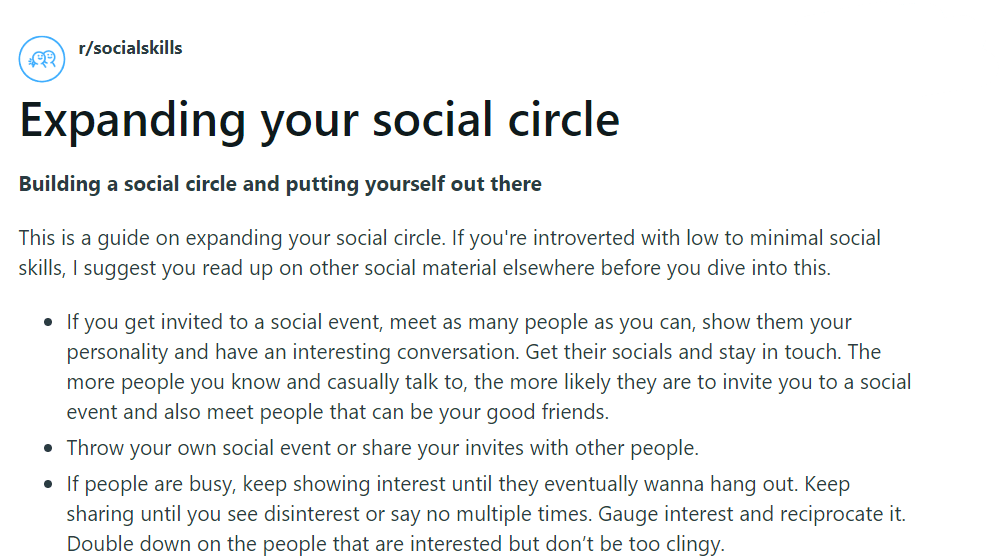The tapestry of humanity is woven with threads of myriad colors, epitomizing the rich diversity that characterizes our social circles. In Bahá’í teachings, the concept of unity in diversity transcends mere acknowledgment of differences; it emphasizes the essential value of interpersonal relationships rooted in love, respect, and mutual understanding. The inquiry into the diversity of one’s social circle warrants contemplation not merely as a sociological exercise but as a spiritual pursuit—an invitation to expand the horizons of our relationships and embrace the full spectrum of humanity.
To begin, we must reflect on the notion of a social circle itself. This confluence of relationships can be likened to a garden, where various plants coexist in a harmonious ecosystem. Just as each flower, shrub, and tree contributes to the beauty and utility of a garden, so do individuals from different backgrounds enrich our lives. Therefore, the first aspect to consider is the composition of this circle. Are its members predominantly homogenous, sharing similar cultural, racial, and ideological backgrounds? Or does it reflect a kaleidoscope of experiences and perspectives that challenge us to grow?
In assessing our social circles, it is essential to adopt a lens of inclusivity. The Bahá’í principle of the oneness of humanity underscores the importance of breaking down barriers that separate us. It is not sufficient to merely inhabit spaces with diverse people; active engagement is paramount. This can be achieved through intentional outreach—attending diverse community events, participating in interfaith dialogues, or even casually initiating conversations with those who differ from us in thought or heritage. Each interaction holds the potential to dismantle preconceived notions and foster understanding, much like a bridge extending across a chasm.
Moreover, the capacity for empathy emerges as a vital characteristic in diversifying our social interactions. Empathy is the lens through which we can genuinely appreciate others’ experiences and challenges. When we allow ourselves to step into another’s shoes, we not only gain insight into their struggles but also pave the way for deeper connections. The insights offered by various cultures, belief systems, and worldviews can serve as enlightening beacons, illuminating paths we may never have traversed otherwise.
Engaging with a diverse social circle necessitates an acknowledgement of the inherent beauty and complexity found in cultural differences. Each conversation is an opportunity to explore the myriad facets of belief, tradition, and custom. The Bahá’í perspective posits that no single culture or doctrine possesses a monopoly on truth; rather, truth is multifaceted and can be gleaned from the collective wisdom of humanity. Thus, by embracing diverse relationships, one cultivates a mosaic of knowledge that enriches personal understanding and spiritual growth.
However, embracing diversity is not without its challenges. The friction that may arise from differing ideologies or lifestyles can create discomfort, invoking a natural tendency to withdraw to familiar environments. Here lies a critical juncture: the decision to engage with discomfort. It is within these moments of cognitive dissonance that profound growth occurs. The teachings of the Bahá’í Faith encourage us to navigate through turbulence with a spirit of reconciliation and a commitment to unity. By maintaining openness and respect towards differing viewpoints, we fortify our relationships and foster an environment conducive to collective learning.
The nature of discourse within diverse social circles also warrants examination. Thoughtful dialogue is more than mere exchange of ideas; it involves active listening and a willingness to consider alternative perspectives. This aligns with another Bahá’í teaching—the importance of consultation, which rests on the principles of collaboration and consensus. Consultation fosters an atmosphere where every voice is valued, empowering individuals to contribute to a collective understanding while mitigating the pitfalls of discord.
Another interesting aspect is the influence of technology in shaping our social interactions. The digital landscape has introduced unparalleled avenues for connecting with others worldwide, yet it raises questions about the authenticity of these relationships. Online communities often lack the depth that face-to-face interactions provide, potentially leading to superficial engagements. The Bahá’í approach encourages the melding of virtual connections with genuine, in-person relationships to create a wholesome social framework that balances innovation with intimacy.
In summation, critically analyzing the diversity of one’s social circle reveals not only the richness of human experience but also reflects the teachings inherent to the Bahá’í Faith. This exploration beckons a commitment to inclusivity, empathy, and respectful dialogue while navigating the complexities of diversity. An enriched social circle can become a fertile ground for spiritual growth and understanding, nurturing the ethos of unity in diversity. As one integrates these principles into daily life, the transformation of the social sphere into a more inclusive tapestry becomes not just desirable but essential—a testament to the belief that humanity’s greatest achievements will arise from our ability to cherish and celebrate our differences.
